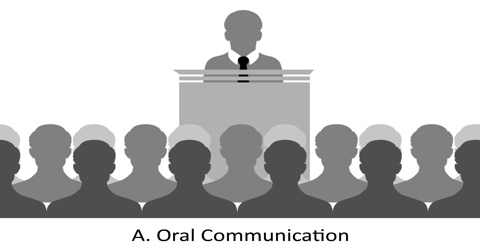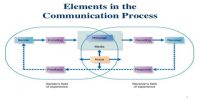Oral communication is the expression of an idea through spoken words. It is the most widely used and easiest method of communication. Followings are the prominent features of oral communication:
Characteristics of Oral Communication –
- Clear oral expression:
Oral communication occurs through spoken words. The pronunciation of the spoken words should be clear and complete enough so that the receiver can understand the message. Language should be easy and understandable.
- Better understanding:
Another major feature is the possibility of confusion is very uncommon; if there is any misapprehension takes place that can be rectified without delay by asking questions. If the receiver finds the communication indefinite he can get a fast explanation on the spot.
- Flexibility:
The key feature of oral communication is, it is further flexible than any other means of communication. This communication can be changed simply depending on the situation.
- Direct exchange of message:
In oral communication, information is exchanged between the sender and receiver directly in the form of face-to-face conversation, telephonic conversation, meeting, conference, interview, etc. The speech of this communication must be sensible and applicable to the subject matter. Irrelevant a pointless speech should be avoided.
- Media used:
Oral communication can occur in various ways. Some prominent methods of oral communication are a face-to-face conversation, telephonic conversation, meeting, conference, interview, etc.
- Preservation of the message:
Oral communication uses spoken words in exchanging information. So the information exchanged through it cannot be preserved if it is not recorded in a cassette or compact disk (CD). Another pre-condition of successful communication is that the message must be free from all kinds of errors.
- Suitability:
Since spoken words are used in oral communication, it is very much useful to communicate with the illiterate people. In the case of written or other communication messages cannot be corrected immediately, but in this situation, it can be corrected within a few seconds.
- Minimum time and cost:
Exchanging information through oral media requires a shorter period of time and a lesser amount of cost as compared to written media. This communication helps to expedite work. Where time is diminutive, it’s worthwhile to use oral communication like impulsive conferences, verbal orders and even mechanical devices like telephones. It does not require drafting, composing or editing of the message so it saves time as well as cost. It takes less time than written communication.
- Immediate feedback:
Oral communication provides instant feedback of the receiver to the sender as regard to the message recessed by him. Immediate feedback can be received in case of oral communication. By gauging the disposition and reaction of the receiver he can make changes consequently.
- Changeability:
Another important femme of oral communication is that it can be modified instantly if need. Before communicating orally the speaker should take the appropriate arrangement of the subject affair of the communication.
- Degree of formality:
Though in some cases oral communication occurs formally still it enjoys the maximum benefit of informal communication. Short but instructive speech makes communication effectual. Errorless speech makes communication productive.
- Possibility of distortion:
This communication occurs by using spoken words. Since the spoken words cannot be recorded, it is easy to distort the message of this communication intentionally or unintentionally. The communication should consider the receiver’s position, awareness, educational skill, and aspiration. That is to say, the speaker must be receiver oriented.















